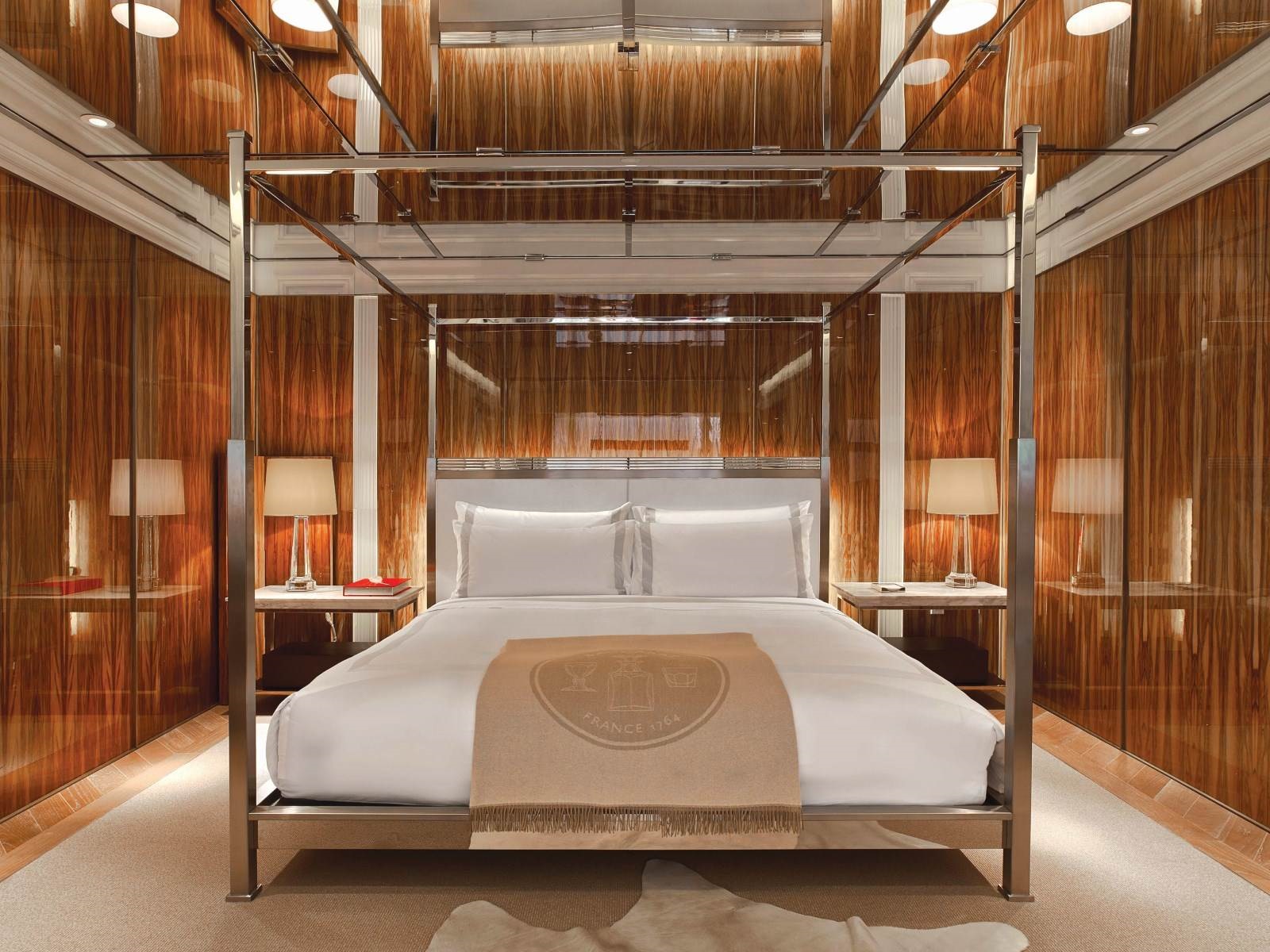High Fashion Meets Hospitality
LUXURY BRANDS LOOK TO PROVIDE A “LIFESTYLE EXPERIENCE” FOR THEIR CUSTOMERS THROUGH HOTELS
Bulgari recently opened a state-of-theart Shanghai hotel, a new addition in its stable of seven properties that have helped expand the high-end jewelry company’s footprint.
But Bulgari isn’t the only luxury brand getting into the hospitality business. Baccarat, Armani, and Versace all have hotels with their names on them. And prepare yourself to see more: Bulgari reportedly has plans for another 15 additions—with future outposts in Moscow, Tokyo, and Paris—joining a list of locations that includes Dubai, Bali, and London in addition to the original Milan hotel.
A TREND BECOMES MORE PERMANENT
Since the 1997 opening of Florence’s Hotel Lungarno under the ownership of the Ferragamo family—which was followed quickly after by the 2000 opening of Australia’s Palazzo Versace— luxury-retail branded hotels have served as something of a quirk in the travel industry. A steady increase in new openings over the past few years, however, has shown their staying power. As major fashion houses have become more global, targeting key retail markets in Asia and the Middle East, hotels have become a critical brand extension and a significant way to connect with both loyal customers and potential new ones.
“These are brands that we all associate with on some other level, whether it’s fashion or lifestyle, and now you see them as a hotel, but they’re [also] offering a new experience,” says Lorraine Sileo of the Connecticut-based travel market research firm Phocuswright. “They're offering these services inside, whether it’s through a cocktail bar or through food or through ambience.”
Lifestyle companies are also entering into the business. Home-goods retailer West Elm has plans for six hotels in cities across the U.S., while the Japanese brand Muji recently unveiled a Beijing hotel in addition to its Shenzhen location and will open in Ginza next year.
The branding opportunities presented by the hotels offer clear benefits to a fashion company’s lines, in particular. And hotel properties can help solidify a brand’s identity. “True luxury brands can rely on two important assets: an unmistakable identity and impeccable service,” says Silvio Ursini, Bulgari Group’s executive vice president.
A DIFFICULT FUTURE
Piers Schmidt, founder of the London consultancy Luxury Branding, believes the trend will carry on, but he cautions that not all will succeed.
“There are all kinds of pitfalls, and I think specifically from the brand's perspective it’s very tempting to imagine this perfect nirvana for your brand. But 24/7, 365 days a year is an entirely different business from designing and manufacturing collections,” he says. “There are so many variables.” Among potential pitfalls is the fact that these ventures are expensive to pull off.
BRANDING STYLES VARY
How brand cues are incorporated into the hotels’ decor and ambience varies. At the Baccarat Hotel in Manhattan, crystal abounds and can be seen everywhere, from the chandeliers to the building’s shimmering glass facade. It ranges “from Baccarat glassware, used exclusively throughout the hotel, to classic pieces curated from the brands’ archival and contemporary collections for public spaces and rooms,” says Hermann Elger, chief operating officer of Baccarat Hotels and Resorts and managing director of Baccarat Hotel New York.
Armani’s locations in Milan and Dubai maintain a sleek design very much in keeping with the fashion house’s aesthetic, while Versace’s properties in Dubai and Queensland take a more literal approach, with the brand’s distinctive prints and Medusa logo on full display.
Ferragamo’s Lungarno Collection, which operates hotels, resorts, and restaurants in Tuscany, Florence, and Rome, finds that the hotel business reuires a different approach than that of clothing and accessories. “We believe that fashion is volatile and changes with the seasons, while a hotel requires longevity. At the same time, it must remain fashionable throughout the years,” says company CEO Valeriano Antonioli.

